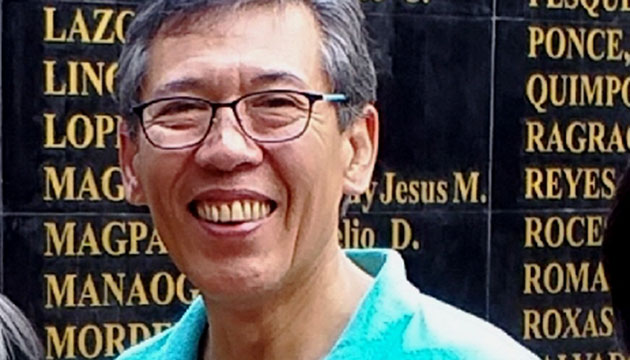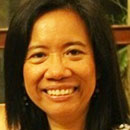Senators Sotto, Lacson, Dela Rosa, and Marcos put forward the bill.
Two of the Bill’s proponents were former Police Chiefs who are Duterte allies, along with Marcos and Sotto.
Why should Filipinos in Canada be concerned about the Anti-Terrorism Act?
We need to be aware and concerned about the Act for three main reasons.
One, many Filipinos are transnational actors and global citizens who move, work and do business across national borders.
Two, what happens in the Philippines affect Filipinos in the diaspora who still maintain strong ties with their ancestral land through remittances, volunteerism, activism, social media presence, entrepreneurship, and family connections.
Three, Canada is a known world champion of human rights, peacekeeping and justice. Our adopted country maintains multilateral ties in global bodies such as the United Nations. It also maintains strong bilateral ties with the Philippines through trade, direct investments, development aid, and of course, labor migration and immigration policies.
There are at least ten important things about the Act Filipino-Canadians should know.
One is the Act’s rationale or grounds for new legislation.
The Anti-Terrorism Act of 2020 amends the Human Security Act of 2007, which its Senate proponents considered a failure in combatting terrorism. Former Police Chief Senator Panfilo Lacson said the Human Security Act of 2007 “has proved to fail in terms of its efficacy as an anti-terrorism measure." He considered it lenient for offenders and restrictive for enforcers.“Under the current Human Security Act, there are only four instances for terrorists to be prosecuted under the law…On the other hand, there are a total of 20 instances where law enforcers can be charged and penalized for violations of the Human Security Act,” Lacson told reporters last year.
Second is its provisions on the definition of terrorism.
The Act expands the definition of terrorism to include acts intended to cause "death or serious bodily injury to any person," "extensive damage and destruction" to a government facility, private property or critical infrastructure. These acts are considered terrorist when the purpose of those acts is to "intimidate [the] general public," "create an atmosphere or message of fear," or "seriously destabilize or destroy the fundamental political, economic and social structures of the country."
Third are the Act’s provisions on criminalizing acts considered ancillary to terrorism.
The Act criminalizes the "threat, planning, training, facilitating of" and "proposal" and "inciting" to terrorist activities by means of speeches, proclamations, writings, pamphlets, banners, logos, emblems and similar articles.
Fourth is how the justice system handles suspects and convicted people under the Act.
The Act subjects suspects to surveillance, warrantless arrest and detention for up to 24 days. It also removes compensation for suspects in the event of acquittal. Those found guilty face life sentences without the chance of parole.
Fifth is who will implement the Act.
The Acts grants immense power of interpretation and implementation of the law to the state, police and its military arms through the Armed Forces of the Philippines and the Philippine National Police. The Act undermines whatever “safeguard” are provided in the Constitution’s human rights provisions by giving free rein to the Anti-Terror Council (ATC), which will determine what constitutes “a serious risk to public safety”. The Presidents appoints members of the Anti-Terrorism Council, which is the main implementer of the law.
Sixth is what defenders are saying in support of the Act.
Defenders of the Act, also likely defenders of the Duterte administration, say that the Act can end terrorism in the country. These terrorist acts include those caused by Islamic State-aligned militants, including those who commit suicide bombings and attacks in late May 2020 and sieged Marawi in 2017, and communist insurgencies that have been around since the 1920s.
Seventh is why the government’s Commission on Human Rights opposes the Act.
The Philippines' own Commission on Human Rights opposes the Act’s broad definition of "terrorism" that "paves the road for possible abuse."The overreach, according to CHR, could also be used "to limit substantial freedoms, including expression of dissent, [and with] the vague and overly broad definition, authorities could wantonly tag [the] exercise of rights as terrorist expressions. "Human rights lawyer Jose Manuel Diokno said, "It's not about going after terrorists, but critics of this administration."
Eighth is why international human rights organizations are opposing the Act.
International human rights organizations such as Amnesty International, Human Rights Watch and the UN High Commissioner for Human Rights have openly opposed the Bill that later became the Act. Their concerns emerge from the Duterte-led administration's record of cracking down on political opposition and more recently, the arrest of government critics during the pandemic lockdown.
The United Nations High Commissioner for Human Rights said the Act "dilutes human rights safeguards, broadens the definition of terrorism and expands the period of detention without a warrant from three to 14 days, extendible by another 10 days. The vague definitions in the Anti-Terrorism Act may violate the principle of legality." Commissioner Michelle Bachelet called on President Duterte to veto the bill due to the “blurring of important distinctions between criticism, criminality and terrorism.”
Human Rights Watch called the Act "a human rights disaster in the making."By this broad definition, starting a fight in a bar could technically be classified as an act of terrorism," said the international human rights group.
According to Nicholas Bequelin, Asia-Pacific Regional Director of Amnesty International, "This law's introduction is the latest example of the country's ever-worsening human rights record. Once again, this shows why the UN should launch a formal investigation into ongoing widespread and systematic violations in the country."
Ninth is why churches, business community and universities opposed the Act.
Leaders of the Catholic Church, known to have an acrimonious relationship with President Duterte, called the Act “inhuman, unjust and unlawful.” Philippine Protestants and other Church leaders from various denominations called it “morally wrong” and “a travesty against God’s will.”
Sixteen Philippine business groups came out voicing strong opposition to the Bill they considered "highly divisive because it poses clear and present danger to human rights enshrined in our Constitution at a time [of pandemic] when our nation needs to come together as one."
In a public statement of the University of the Philippines Center for Integrative and Development Studies, Program on Alternative Development, signed by 25 Canadian professors and graduate students, called the Act, “Nothing but a weapon to silence criticism and dissent toward the government,…a threat to the fundamental constitutional rights of the Filipino people.”
They said: “As scholars and activists, we cannot stand by as we lay witness to the passage of this bill, especially under the current regime which has not been shy to use violence against the weak, powerless and the poor. We believe that addressing terrorism must not be addressed through punitive and draconian measures….In order to end terrorism, what our society needs are real opportunities for its people, schools for its children, protection for peoples across races, sexes, and genders, an end to discrimination and violence, and genuine, open and transformative conversations in our pursuit of development.”
Tenth is the future of the Act.
Given mounting opposition to the Act from all sectors of society, the law is being challenged in the Supreme Court by a lawyer’s group led by Howard Calleja, the De La Salle brothers led by former Department of Education Secretary Brother Armin Luistro and other civic groups.
These three reasons and ten things are only some beginning points to start our conversations with our family and friends, wherever they are. Where do we stand on this Anti-Terrorism Act?
As citizens and members of an international community that respects human rights, Filipinos in Canada have a lot to gain by keeping themselves informed of such legal and political developments that affect our lives and our loved ones in the Philippines.



